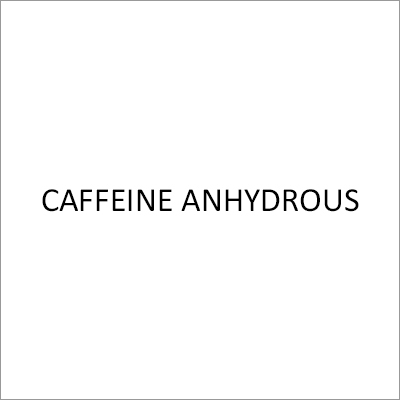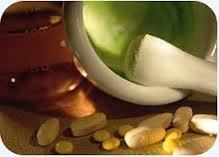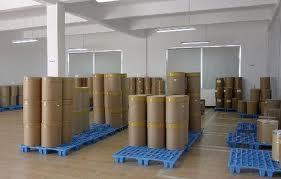Caffeine Anhydrous
750 INR/Kilograms
Product Details:
- Molecular Formula C8H10N4O2
- EINECS No 200-362-1
- Melting Point 234-236.5
- Smell No Smell
- Boiling point 416.789
- Storage Room Temperature
- Solubility Sparingly soluble in water Freely soluble in boiling water; slightly soluble in ethanol (96%).Its dissolves in concentrated solution of alkali benzoates or slicylates
- Click to View more
X
Caffeine Anhydrous Price And Quantity
- 25kgs Kilograms
- 750.00 - 800.00 INR/Kilograms
- 750 INR/Kilograms
Caffeine Anhydrous Product Specifications
- 234-236.5
- 200-362-1
- C8H10N4O2
- No Smell
- 416.789
- Not Available
- Sparingly soluble in water Freely soluble in boiling water; slightly soluble in ethanol (96%).Its dissolves in concentrated solution of alkali benzoates or slicylates
- 293930
- Powder
- C8H10N4O2
- Room Temperature
- Almost white crystalline powder.
- NMT 20ppm
- 194.22 GSM (gm/2)
- Not available
- Medicine Grade
- 5 Years
- Other
- Not available
- NMT 0.5%
- 58-08-2
- Caffeine is a nervous system stimulant that clears drowsiness and gives you an energy boost. Caffeine is such an effective stimulant that many people are using a highly concentrated caffeine powder, or caffeine anhydrous, to stimulate athletic performance or weight loss.
- Other
Caffeine Anhydrous Trade Information
- Mumbai
- Cash Advance (CA) Letter of Credit (L/C) Letter of Credit at Sight (Sight L/C) Delivery Point (DP) Days after Acceptance (DA) Cash in Advance (CID)
- 100 Kilograms Per Month
- 7 Days
- Yes
- Free samples are available
- Drum pack
- Australia North America Eastern Europe Western Europe Middle East Africa Central America South America Asia
- All India
- GMP and ISO
Product Description
Caffeine Anhydrous provided by our company, is mainly produced from the seeds and leaves of coffee plants. This narrows the blood vessels in the brain to reduce headache. And also works by blocking the release of certain chemical messengers that cause pain. This is clinically tested under various parameters to ensure its high quality. Caffeine Anhydrous helps in better relieving the pain and increasing the effectiveness of the medicine. This is very cost effective and can be easily availed at nominal pricing, in bulk quantities.
Caffeine Anhydrous Properties:
- CAS Number: 58-08-2
- Name: Caffeine
- Formula: C8H10N4O2
- Molecular Weight: 194.22
- Synonyms: 1H-Purine-2,6-dione,3,7-dihydro-1,3,7-trimethyl-; Alert-Pep;Asia migrine;DHCplus;Durvitan;Guaranine;Koffein;Mateina;Methyltheobromine;1,3,7-Trimethyl-2,6-dioxopurine;1,3,7-Trimethylxanthine;3,7-Dihydro-1,3,7-trimethyl-1H-purine-2,6-dione;7-Methyltheophylline;
- EINECS: 200-362-1
- Density: 1.45 g/cm3
- Melting Point: 234-236.5 °C(lit.)
- Boiling Point: 416.789 °C at 760 mmHg
- Flash Point: 205.867 °C
- Solubility: 20 g/L (20 °C) in water
- Appearance: White to light yellow crystal powder
- Available Form: Powder
Introduction of product:
Caffeine anhydrous is extracted from leaves and seeds of coffee plants. A dehydrated product is defined as anhydrous, meaning "without water." After harvesting, caffeine is extracted from the plant matter and dried. Resulting in a coffee powder that is highly concentrated.
How does it work:
Caffeine activates the central nervous system (CNS), the heart, muscles, as well as the blood pressure-regulating centers. Caffeine might raise blood pressure when used regularly by some people, but it might not always do so in others. Caffeine can also increase urination by acting as a "water pill." The same is true for regular caffeine users, however. Furthermore, moderate exercise does not lead to dehydration when drinking caffeine.
Applications. Or where it is used:
Weight loss supplements that contain caffeine anhydrous are becoming increasingly popular. Food items such as caffeinated gum and energy bars contain caffeine as well. It is dehydrated caffeine that is anhydrous, which means that it has no water in it.
How to use:
People are using a highly concentrated form of caffeine, known as caffeine anhydrous, for their athletic and weight loss efforts. According to the U.S. Food and Drug Administration (FDA), an average teaspoon of caffeine powder is the same as 28 cups of coffee.
Dosage of usage:
The following doses have been studied in scientific research:
ADULTS
BY MOUTH:
1) General: Coffee contains 95-200 mg of caffeine per cup. Black tea provides between 40 and 120 mg of caffeine per 8-ounce serving. In an 8-ounce serving of green tea, you will find 15-60 mg of caffeine. The caffeine content of 12 ounces of cola ranges from 20 to 80 mg. A single serving of sports or energy drinks typically contains between 48 and 300 milligrams of caffeine.
2) For migraine or tension headache: Caffeine dosages ranging from 100 to 250 mg a day have been used. The use of caffeine and other drugs, such as aspirin, acetaminophen, and ergotamine, has been reported.
3) For headache after epidural anesthesia: Caffeine 300 mg has been used.
4) For mental alertness: The dosage ranges from 100 to 600 mg of caffeine per day. Glucose, taurine, and L-theanine can also be taken along with caffeine.
5) For athletic performance: Two to ten milligrams per kilogram have been used. You should be aware that higher doses of 800 mg per day may increase urine levels beyond the 15 mcg/mL permit set by the National Collegiate Athletic Association.
6) For memory: 65-200 mg of caffeine has been used.
7) For obesity: Combination products containing ephedrine and caffeine generally contain dosages of 20 mg and 200 mg three times daily. For 8 weeks, a specific combination product (Prograde Metabolism) containing 1000 mg of raspberry ketone, ginger root extract, bitter orange fruit, l-theanine, caffeine, capsicum extract, garlic root extract and black pepper fruit extract has been used twice daily.
8) For acute pain: Pain relievers such as acetaminophen, propyphenazone, and ibuprofen can be combined with caffeine doses between 50 and 130 mg.
BY IV:
1) For headache after surgery: An intravenous dose of 200 mg caffeine has been given to avoid headaches after surgery.
2) For headache after epidural anesthesia: In this case, caffeine is given intravenously (by IV) by healthcare providers.
CHILDREN
BY MOUTH:
1) For pauses in breathing that may be followed by low heart rate and low oxygen levels in newborns: To treat infants with this condition, healthcare providers administer caffeine by mouth to them.
Side effects:
When taken by mouth: For most healthy adults, caffeine in a daily dose of 400 mg is likely to be safe. An equivalent amount of caffeine can be found in about 4 cups of coffee.
When consumed by mouth in high doses (greater than 400 mg per day), caffeine may be harmful. The side effects of caffeine include insomnia, nervousness and restlessness, stomach irritation, nausea, increased heart rate and respiration, and other symptoms. Taking larger doses can cause anxiety, agitation, headaches, and chest pain.
Drinking caffeine in very high doses is probably NOT SAFE since it can cause irregular heartbeats and in severe cases, death. Caffeine products that contain very high concentrations or pure caffeine have a high risk of being taken in too high doses. These products should not be used.
Tell us about your requirement

Price:
Quantity
Select Unit
- 50
- 100
- 200
- 250
- 500
- 1000+
Additional detail
+91
Email










 : nilesh.sheth70
: nilesh.sheth70
